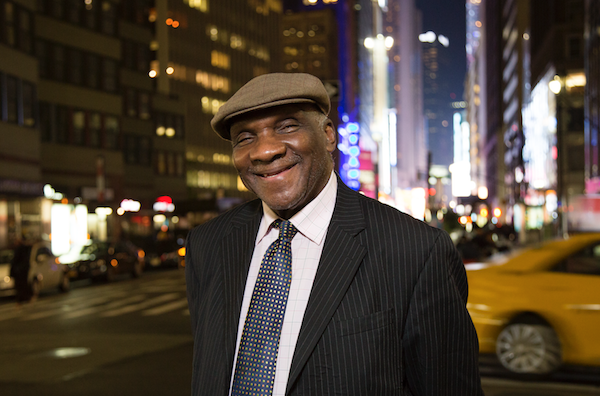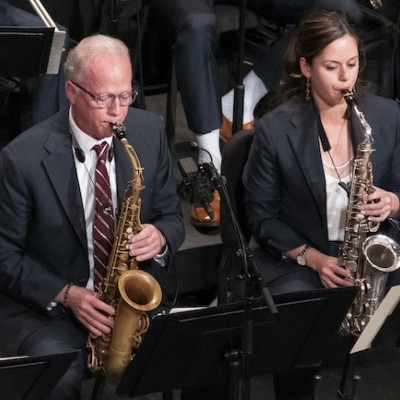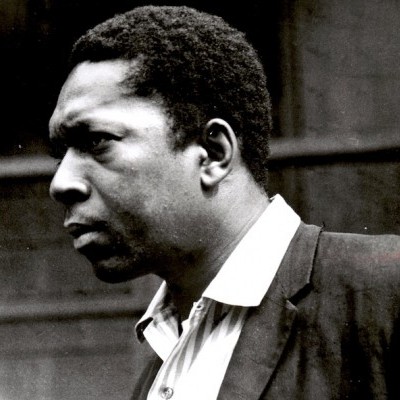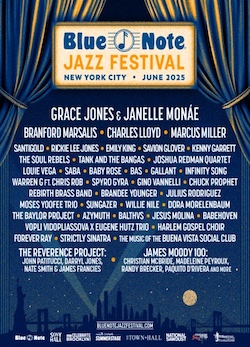Mar 4, 2025 1:29 PM
Changing of the Guard at Lincoln Center Jazz Orchestra
On October 23, Ted Nash – having toured the world playing alto, soprano and tenor saxophone, clarinet and bass…

Harold Mabern (1936–2019)
(Photo: Jimmy Katz)In July 1975, 39-year-old Harold Mabern took the stage at Carnegie Hall during a solo piano night at the New York City edition of the Newport Jazz Festival. Amid a lineup of eight remarkable pianists—including the bedazzling French modernist Bernard Peiffer, the reflective Modern Jazz Quartet founder John Lewis and the exuberant ragtime master Eubie Blake—Mabern’s post-bop language, laced with Memphis blues and delivered with a rollicking punch, stood out.
Decades before he died of a heart attack on Sept. 17 at 83, that approach, coupled with a personal openness that drew people to him onstage and off, earned Mabern status as a stalwart of the jazz community. And while in the years following that Carnegie Hall concert he didn’t often enjoy a similarly august forum for his solo work, Mabern carved a niche among jazz pianists—valued as much for his dedication to his work as the work itself.
“He was all in,” said drummer Joe Farnsworth, who knew him for 33 years as a student, sideman and booker. “His life was all about the music and playing.”
Born in Memphis on March 20, 1936, Mabern took up drums early on—an experience reflected in the percussive approach he later developed on the piano. Self-taught, he spent his teen years immersed in the fertile Memphis scene, cultivating relationships with esteemed locals like pianist Phineas Newborn Jr. and saxophonist George Coleman, with whom he played off and on for years.
In 1954, he moved to Chicago, where Mabern and Frank Strozier, another Memphis saxophonist, worked in drummer Walter Perkins’ band. Five years later, he moved to New York, where he was hired by a who’s who of jazz innovators, among them trumpeters Miles Davis, Freddie Hubbard and Lee Morgan, for whom he wrote “The Beehive,” a highlight of Morgan’s 1970 Blue Note album Live At The Lighthouse.
Ironically, said George Wein, founder of the Newport Jazz Festival, Mabern’s sterling reputation as a sideman could overshadow his other work, threatening to consign him to membership in the club of “great, great players who never could break through as leaders.”
But he made albums of distinction. Mabern’s first, 1968’s A Few Miles From Memphis, featured Coleman and landed him in the rarified stable of artists signed to the Prestige label. His last, 2018’s The Iron Man: Live At Smoke (Smoke Sessions)—a two-disc effort with longtime associates Eric Alexander on saxophone, John Webber on bass and Farnsworth—closed a circle by including the debut album’s title track, a tribute to his hometown. Mabern, in fact, never forgot his roots, said Farnsworth, who got to know him starting in 1986 as a student at New Jersey’s William Paterson University, where the pianist taught for nearly four decades.
In a career spanning 60 years, Farnsworth said, Mabern more than once ran up against club owners who only wanted to book him with a horn player. But in the past decade, Farnsworth and his wife, vocalist Jennifer Farnsworth, helped secure dates for Mabern’s trio in Manhattan rooms like the Village Vanguard, Smalls and Dizzy’s Club Coca-Cola. In June, the trio played the Rochester International Jazz Festival, where Mabern also played solo and with a quartet. In the week before he died, Mabern was gigging with the trio at Fat Cat in Greenwich Village, and planned to take the group to France and Israel.
Always a soulful artist, Mabern, according to Farnsworth, had of late been focusing even more intensely on “playing from the heart.” And his life mirrored that focus.
Even on off nights, Mabern might be found holding court at the end of the bar at the club Smoke—a big man with a big smile embodying an ethos he articulated in an October 1971 DownBeat article: “[F]or me the most important thing is to be able to relate to the public.”
“Everybody loved him,” Wein said. DB

As Ted Nash, left, departs the alto saxophone chair for LCJO, Alexa Tarantino steps in as the band’s first female full-time member.
Mar 4, 2025 1:29 PM
On October 23, Ted Nash – having toured the world playing alto, soprano and tenor saxophone, clarinet and bass…

“This is one of the great gifts that Coltrane gave us — he gave us a key to the cosmos in this recording,” says John McLaughlin.
Mar 18, 2025 3:00 PM
In his original liner notes to A Love Supreme, John Coltrane wrote: “Yes, it is true — ‘seek and ye shall…

The Blue Note Jazz Festival New York kicks off May 27 with a James Moody 100th Birthday Celebration at Sony Hall.
Apr 8, 2025 1:23 PM
Blue Note Entertainment Group has unveiled the lineup for the 14th annual Blue Note Jazz Festival New York, featuring…

“I’m certainly influenced by Geri Allen,” said Iverson, during a live Blindfold Test at the 31st Umbria Jazz Winter festival.
Apr 15, 2025 11:44 AM
Between last Christmas and New Year’s Eve, Ethan Iverson performed as part of the 31st Umbria Jazz Winter festival in…

“At the end of the day, once you’ve run out of differences, we’re left with similarities,” Collier says. “Cultural differences are mitigated through 12 notes.”
Apr 15, 2025 11:55 AM
DownBeat has a long association with the Midwest Clinic International Band and Orchestra Conference, the premiere…